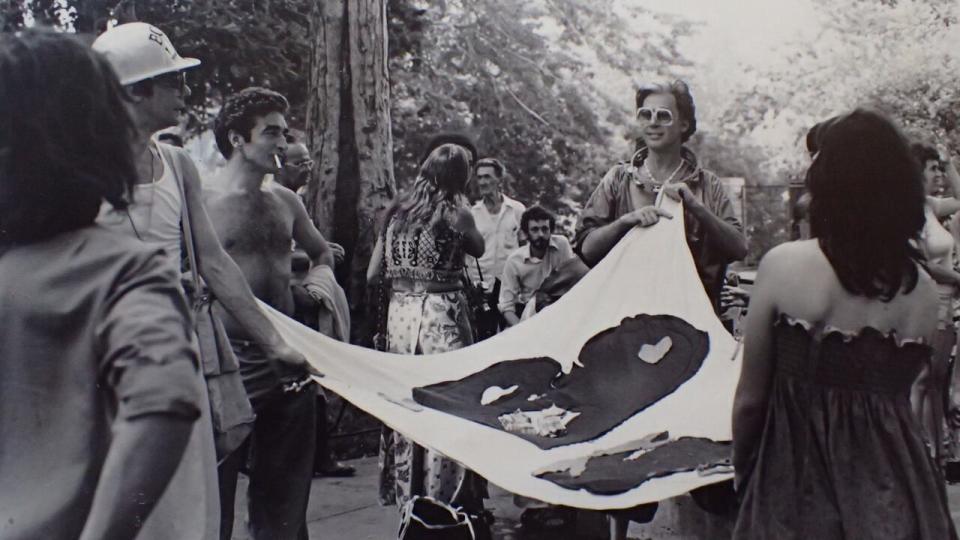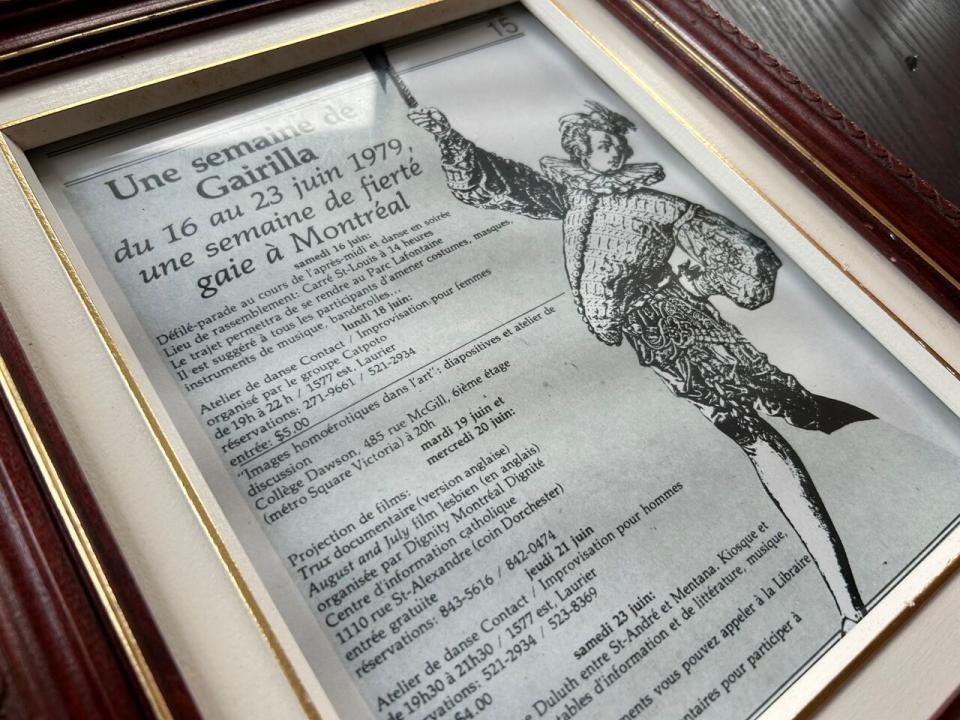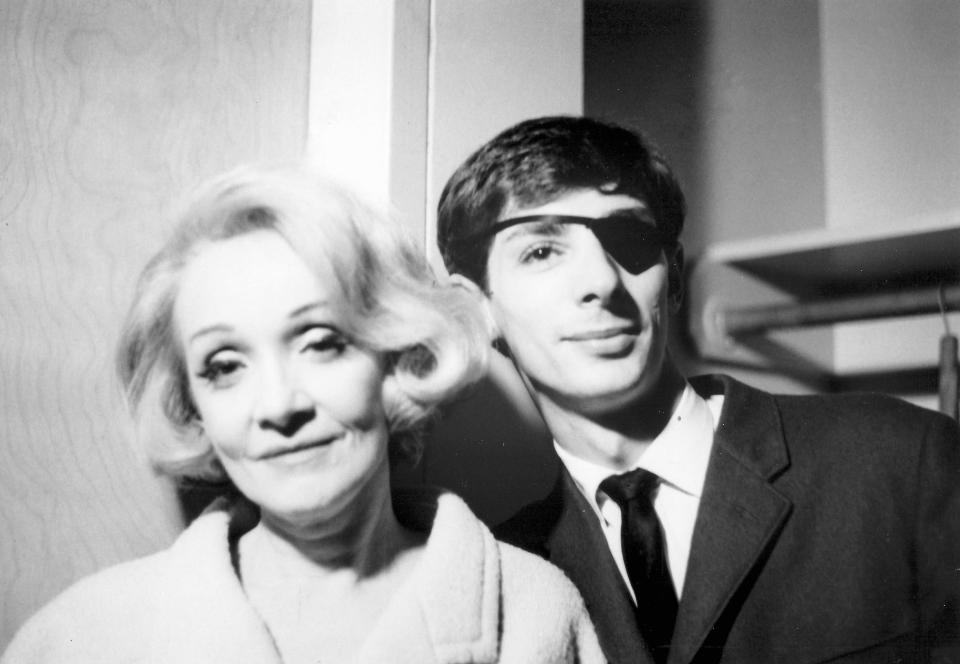John Banks, gay rights pioneer who organized Montreal's 1st Pride march, has died
A few weeks ago, John Banks, a legendary gay rights advocate, noticed two men walking and holding hands.
"It led me to tears," Banks said, while shedding more tears recalling what he saw during an interview with CBC News earlier this month.
"The change in society through the years.… It still worries me in that it's not perfect. But it's a hell of a lot better than it was."
Banks, who dedicated the bulk of his life to spearheading that change, has died. He was 80 years old.
Banks's death — which was announced Monday by the Archives gaies du Québec (AGQ) — comes nearly 45 years to the day after he organized and took part in Montreal's first Pride parade.

On June 16, 1979, around 50 people gathered and marched from Square Saint-Louis to La Fontaine Park in the city's Plateau-Mont-Royal borough.
In 2019, Banks became the first recipient of a Pride Montréal award named after him — the John Banks prize — which recognizes people who have made an outstanding contribution to the creation and development of 2SLGBTQ+ communities.
That year, the city's Pride festivities drew 3.4 million people.
"We always have to remind ourselves that that's the origin of the movement in Montreal," said Simon Gamache, the executive director of Pride Montréal.
"John was present from the get-go."
'Living afraid is almost not living'
Days before his death, Banks sat down with the CBC podcast Good Question, Montreal to talk about the history of the city's Pride parade.
The year 1979 marked the 10-year anniversary of the Stonewall riots, a series of violent confrontations between police and gay rights activists outside a gay bar in New York City that marked a turning point in the 2SLGBTQ+ movement.
"I worked in gay bars. Getting raided was part of life," Banks said, adding that Montreal police officers would often out people they'd find during raids to friends, family members and employers.
When Banks read a local newspaper article about Pride events that were held in different cities, he thought to himself: "Why don't we do it?"

"I was born in the 1940s, and it was illegal until 1969 to be gay," he recalled. "So I just thought, 'Yeah, let's have fun. Let's just do this and have fun doing it."
The event helped kick off a week of festivities, which included dance workshops and film showings. The week was referred to in French as a a "Gairilla week," a play on the word "guerilla."
During his interview, Banks also said Canada's decriminalization of homosexuality in 1969 ultimately "didn't mean much" for gay people.
"We were hassled anyhow. You were afraid. And living afraid is almost not living, you know?"
"It seems like my whole life I was walking around with stooped shoulders and being ashamed. I wanted the opposite! We had been on protest marches. We had done the serious bit for probably 10 years. And so it was time to show ourselves as having fun being gay."
Richard Burnett, an arts and culture journalist and queer activist, said Banks's efforts in 1979 helped create an event that's become "an essential stepping stone in the coming-out process for young people."
An advocate with 'institutional knowledge'
During his life, Banks took on a variety of projects, according to the AGQ.
He once owned a restaurant called Au Jardin. He hosted a show on Radio Centre-Ville, a community radio station in Montreal. He also worked as an assistant for Marlene Dietrich, a German-born actress whose career in entertainment spanned decades.

Burnett describes him as a "special human being" who had "institutional knowledge" of life as a gay person in Quebec during the last eight decades. He also said Banks would often go to community events like parties, cocktails or conferences.
"Having his support, having his validation was huge because it carried a lot of gravitas," Burnett said. "He was John Banks. He was amazing."
Banks also spent decades volunteering at the AGQ, which aims to document the history of the 2SLGBTQ+ communities in Quebec.
In its statement, the AGQ described Banks as a humble person who was proud of what he accomplished — without bragging about it — who never wilted in the face of adversity.
"The 2SLGBTQ+ communities have lost one of the last early-day advocates for the recognition of 2SLGBTQ+ rights in Quebec," the statement reads.

 Yahoo News
Yahoo News 
